
An ambitious endeavour, the Jagriti Yatra is both a promotion of enterprise and itself a manifestation of ingenuity and entrepreneurial spirit.
After traversing across India in a chartered train for two weeks, the 450 youths participating in the Jagriti Yatra arrived at Sabarmati Ashram last week.
A journey dedicated to “building India through enterprise” closed with a brief glimpse of Mahatma Gandhi’s worldview and ideals.
An ambitious endeavour, the Jagriti Yatra is both a promotion of enterprise and itself a manifestation of ingenuity and entrepreneurial spirit.
But the future of this annual Yatra program might well depend on being able to grapple with tough questions about how business enterprise fits into the growing aspirations for social and environmental justice.
The bonhomie generated by the Yatra experience, among the participants, is a happy nurturing ground for thinking about difficult and complex social-economic problems.
...
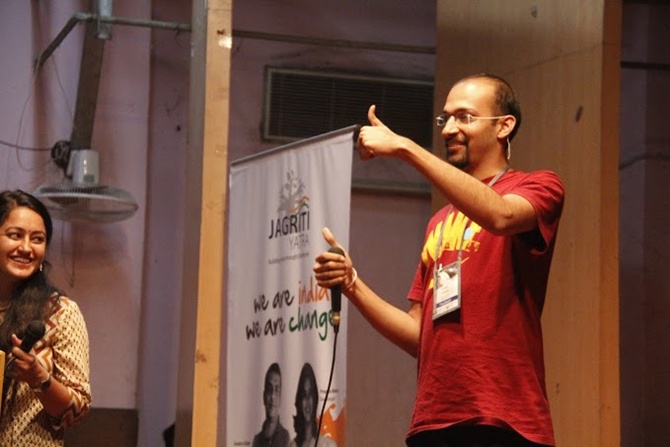
The story began in 1997 when Shashank Mani, currently Executive Director at PricewaterhouseCoopers in Mumbai, brought together a group of friends for a train journey across India to mark the 50th year of Independence.
Their purpose was to get a sense of how the country had changed in the last half century and what is needed to build the future. That journey in a chartered train brought together 200 people from different walks of life who are keen to be part of nation building.
That adventure, which is captured by Mani’s book “India: A journey through a healing civilization”, convinced him that promoting enterprise is the key to a better future for India.
So Jagriti Yatra was registered as a trust which now organizes the annual adventure for about 450 young people taking them to 12 destinations across 7500 kms over 15 days to meet 15 different role models.
...
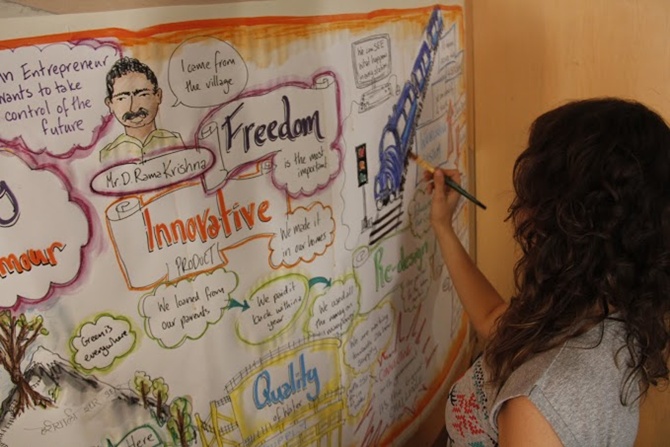
Approximately 18,000 young people applied for the 2013 Yatra. The selection process is based on written submissions through which applicants indicate the nature and intensity of their interest in nation building through enterprise.
The organizers ensure that half or more of the Yatris selected are from tier two cities or even smaller towns – particularly from lower income groups.
Those Yatris who can afford to pay the full amount, approximately Rs 45,000, are encouraged to do so. The others are subsidized by funds raised from sponsors. The 2013 Yatra was sponsored by Google, Coca Cola, Rolls Royce, Idea and National Insurance Company.
An 18 coach train is chartered from Indian Railways – with two coaches being ingeniously re-configured to serve as bathing cubicles. With the train serving as a mobile dormitory the Yatris are able to travel through the night and be at a different location every day.
...
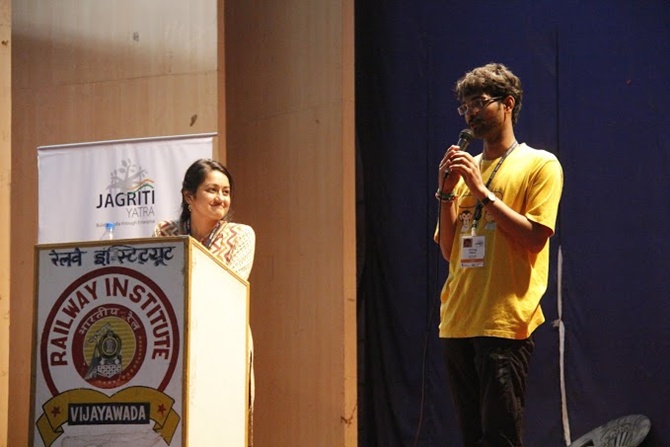
Beginning in Mumbai the Yatra heads south going from Hubli to Bangalore, Madhurai and Chennai before heading north via Vishakapatnam, Behrampur, Patna, Deoria. After a day each in Delhi and Tilonia (Rajasthan) the Yatra’s closing session is held in Ahmedabad before returning to Mumbai.
The extensive planning required to facilitate this enterprising yatra is done by a small full time staff but the Yatra itself is supported by scores of volunteers who dedicate a month to this process.
A combination of business and NGO leaders are among the role models that the Yatris meet.
These include: Jyoti Mhapsekar, a veteran of the women’s movement and a senior activist of Stree Mukti Sanghatana; Popatrao Paware of the social enterprise Hiware Bazar; Subroto Bagchi of Mindtree consulting; Joe Madiath of Gram Vikas an NGO in Orissa; Anshu Gupta of the social enterprise Goonj and Bunker Roy, of the NGOBarefootCollege in Tilonia (Rajasthan).
...

The mission of the Jagriti Yatra is to nurture one lakh entrepreneurs by 2022 and create a million jobs in the process.
This is sought to be done through seven verticals: agriculture and agro business, healthcare, energy, education, water and sanitation, manufacturing, arts-culture-sports.
In each sector the focus is on looking at the role of information communication technology, public-private partnerships, financial services and business services.
Having done this exercise for six years the organizers of the Yatra are now keenly engaged in fostering a network among the Yatra-alumni. This is done not only by encouraging Yatris to be in touch over email and social media -- but also through a series of other gatherings through the year.
...
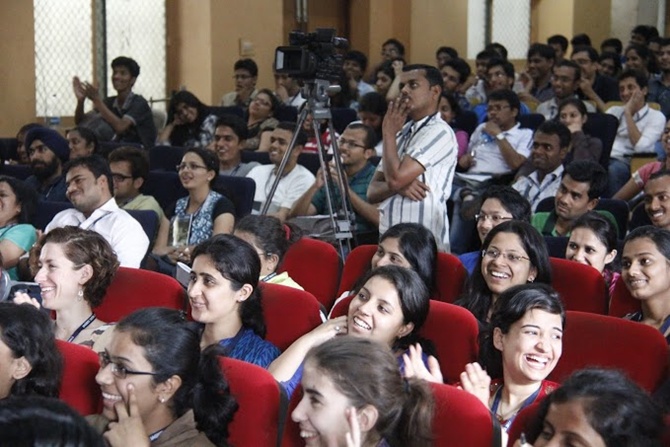
Between February and March some of the Yatris go on to participate in the Jagriti Biz Gyan Tree – a program designed to give them a hands-on experience in developing enterprise solutions for rural India by enabling them to learn from entrepreneurs or experts in various fields.
Joining the Yatra for its final day in Ahmedabad, and the train journey back to Mumbai, I was witness to the joyous energy of the Yatris. "I don't know if we are going home or going back from home" says a message from Sangram Kakad, one of the Yatris, on their website. Enthusiastic and curious young people on a sharply focused journey of this kind open up many possibilities.
So far the Yatra’s focus is to show case the work of visionaries and inspire young people to learn the joys of building enterprises rather than seeing life through the prism of protest.
...
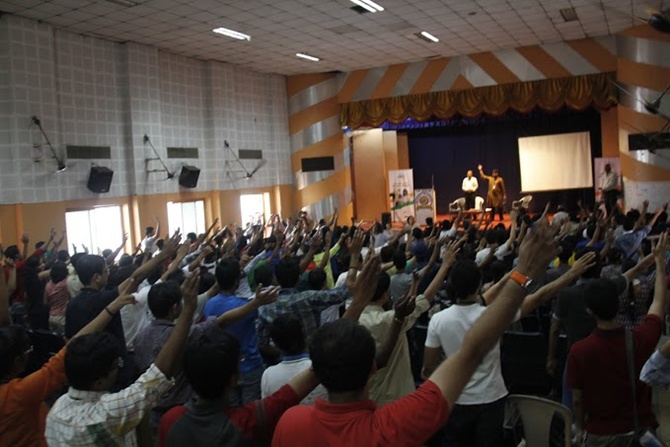
As Mani wrote in a message to the 2013 Yatris, the building message gives “youth a talisman that Mahatma Gandhi would be proud of – even in a small spinning wheel lie the threads of dignity, self help and enterprise.”
However, it is equally true that the protests are a consequence of severe distortions in both economic relations and political power. As the push to grow India’s economy keeps increasing so will conflicts over natural resources – notably water, land, minerals, forests.
The consequent protest movements are not merely expressions of discontent they are desperate struggles for survival by people who are threatened by displacement, who are asked to pay the price for progress.
These are not merely struggles for economic justice within the prevailing system. Many of the protest movements on the ground represent competing visions of how growth should be defined and sought.
...
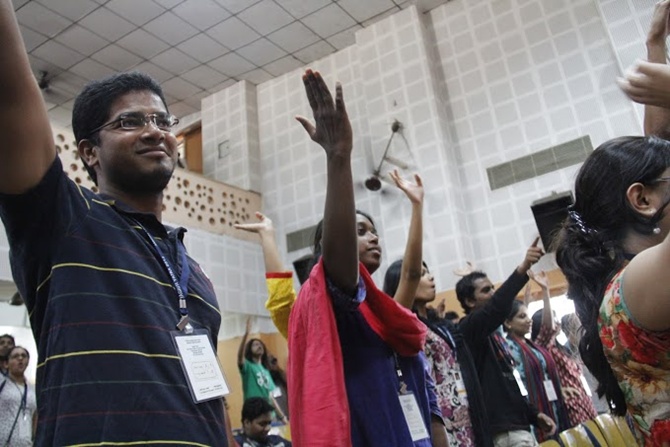
For example, should growth be measured purely in terms of Gross Domestic Product, or the extent to which the nation has both increased actual well-being while also regenerating the environment.
In case of companies it a choice between measuring success purely in terms of the money bottom line or the triple bottom line which includes value creation in terms of social and environmental well-being.
On their own most Yatris have probably never heard of the triple bottom line or the Happy Planet Index and several other such perspectives across the world which are futuristic.
...
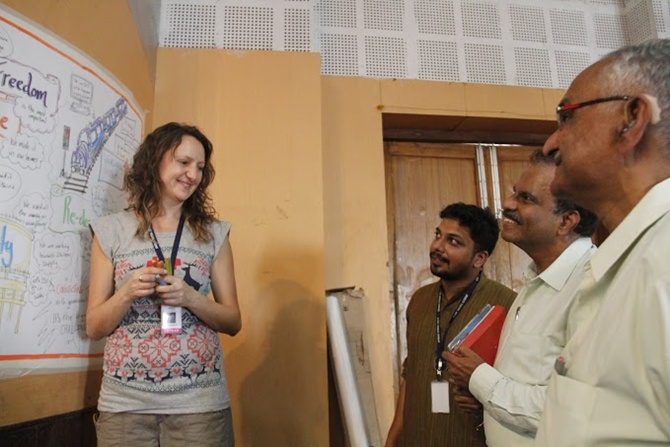
Grappling intensively with these emergent challenges would lend a cutting edge for both the Yatris and the corporate sponsors.
The Yatris would get an up-close look at structural injustices of the prevailing business eco-system and the government’s role in perpetuating those anomalies.
But more importantly, if the corporate partners engage intensively with the Yatra they might better understand why corporations across the world are under pressure to shift to a ‘shared value’ model – that is, new business models that generate profits by creating social and environmental value.
...
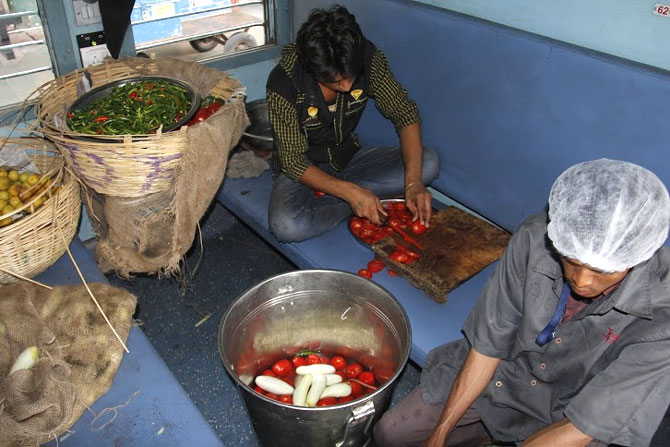
At present many corporations are supporting social enterprises as a part of their CSR.
But a shared value approach would require corporations to be introspective and critically examine whether their business model aims to concentrate power through a command and control approach or whether it fosters mechanisms of cooperation that widen the scope for enterprise at all levels of the economy.
This more difficult process of introspection by global businesses is already unfolding in different parts of the world.
Linking the Yatra to this fledgling process of introspection by business itself would widen the scope of "Jagriti".
Rajni Bakshi is the Gandhi Peace Fellow at Gateway House: Indian Council on Global Relations.